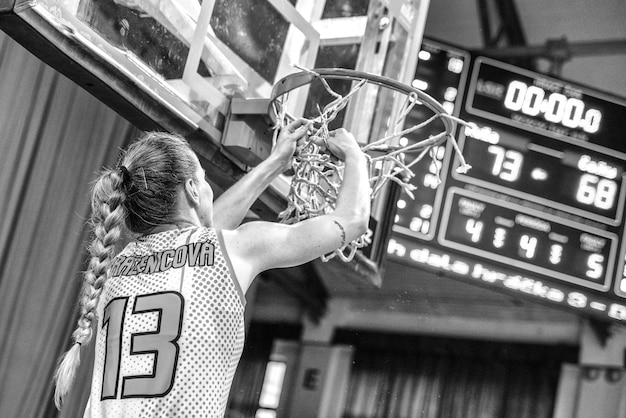Anúncios
As a fervent admirer of college basketball, I often find myself swept away in the whirlwind of excitement that surrounds the season. The thrill of predicting outcomes ignites a spark within me, especially when delving into the nostalgic realm of all-time players. The concept of an all-time players draft generator has become an indispensable tool for enthusiasts like myself, bridging the gap between the legends of the past and today’s emerging stars.
Statistics can be mesmerizing: with over 1,000 NCAA games played each season, the potential for prediction success can yield impressive percentages for those who analyze the right data. Experts often emphasize that the right blend of player statistics, historical performances, and a dash of personal intuition can create a powerful forecasting force. This is where the all-time players draft generator comes into play, allowing us to combine the greatness of prior legends with the current elite, crafting teams that captivate our imaginations.
Anúncios
Understanding All-Time Players in College Basketball
How to Utilize a Draft Generator Effectively
Utilizing a draft generator effectively for college basketball begins with understanding its core features. Many generators allow users to input specific criteria, such as player statistics, team performance, and player potential. This creates a tailored draft experience that can help you assemble your dream team of all-time players. Ensure you familiarize yourself with various filters to refine your search. For instance, selecting players by their peak performance years can give you an edge in assembling a well-rounded roster.
To maximize the effectiveness of an all-time players draft generator, it’s essential to stay updated on historical data. Researching player accolades, championship contributions, and defensive records will enhance your decision-making process. Take advantage of mock drafts and simulations available within the generator to test different strategies. This not only sharpens your drafting skills but also provides insight into how players from different eras might fit together.
Moreover, collaboration with fellow basketball enthusiasts can lead to valuable insights. Engaging in discussions or forums can help uncover hidden gems you may have overlooked. Always keep an eye on emerging trends and shifts in player rankings to adapt your strategy dynamically. In essence, a draft generator is a powerful tool that, when used wisely, can turn your passion for college basketball into a strategic advantage during drafts.
Anúncios
Top College Basketball All-Time Players Selection

Inspirational Quote
“Talent wins games, but teamwork and intelligence win championships.” – Michael Jordan
This quote resonates deeply with the discussion of NCAA basketball legends, highlighting that individual prowess, while important, is ultimately enhanced through collaboration and strategic thinking. These players not only exemplified their personal skills but also understood the value of working together, reinforcing the essence of team dynamics in achieving greatness.
Strategies for Winning Predictions
Frequently Asked Questions
Here are some common inquiries that might enrich your understanding of college basketball predictions and strategies.
- What tools can I use for analyzing historical player statistics? You can utilize various sports analytics websites like KenPom, Sports Reference, and NCAA’s official site, which provide detailed historical performance data.
- How does player synergy affect team performance in college basketball? Player synergy refers to how well players complement each other’s skills on the court. Effective combinations can lead to enhanced teamwork, resulting in better overall performance.
- Are there specific advanced metrics that are crucial for evaluating player performance? Yes, metrics such as Player Efficiency Rating (PER), Box Plus/Minus (BPM), and Win Shares can provide deeper insights into a player’s impact on the game.
- What historical trends should I look at when making predictions for upcoming tournaments? Analyzing the success rates of seedings, player matchups, and how teams performed against similar opponents in the past can be particularly insightful.
- How can injuries influence my predictions for tournament outcomes? Injuries can significantly alter a team’s dynamics and performance. Keeping track of player health and how it has affected teams historically can lead to more accurate predictions.